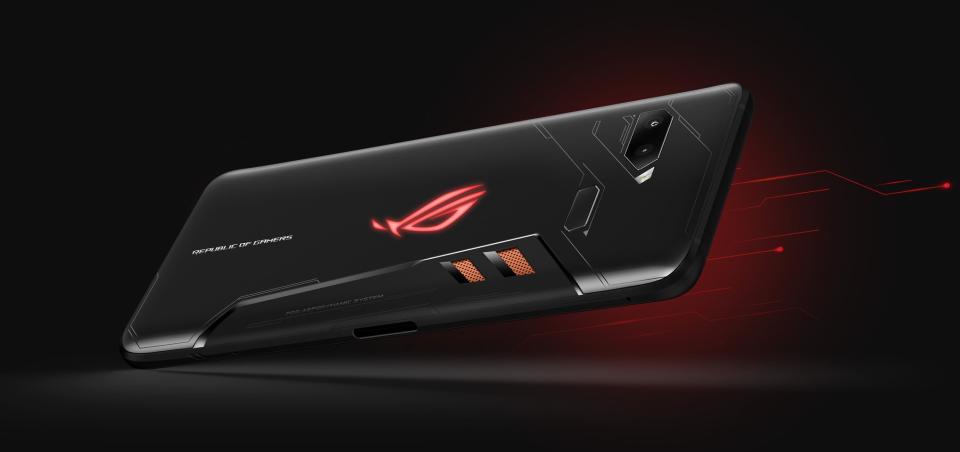Why Tencent Shouldn't Launch a Gaming Smartphone
Tencent (NASDAQOTH: TCEHY) is mulling the development of a gaming smartphone according to Chinese media site 36KR. The tech giant is reportedly holding talks with Asus, Razer, Xiaomi's (NASDAQOTH: XIACF) Black Shark, and Wentai to produce the device.
The first three companies already sell their own gaming smartphones, and might co-brand their devices with Tencent. Wentai is an ODM (original design manufacturer), so Tencent might brand its device as its own. Not much is known about the hardware, but it should be powered by a high-end Qualcomm chipset.

Image source: Getty Images.
Tencent likely believes that launching a smartphone with pre-installed games will lock users into its sprawling ecosystem of video games, social media platforms, streaming media services, and other apps. However, it doesn't make much sense, for three simple reasons.
The Chinese smartphone market is saturated
Smartphone shipments in China fell 11% last year according to IDC, due to market saturation and lengthy upgrade cycles. Only two companies, Huawei and Vivo, posted annual growth in shipments. Oppo, Xiaomi, and Apple (NASDAQ: AAPL) all lost ground.
Huawei and Vivo attracted users with higher-end devices. Huawei's flagship devices touted powerful cameras and a desktop mode for business applications, and Vivo launched full-screen phones which eliminated the notch and kept consumers interested with online-only models.
These premium devices dented Apple's growth, and shoppers with more spending power shunned Xiaomi and Oppo's cheaper phones. Launching a new device in this market would be painfully difficult.
Most gamers don't need gaming smartphones
Gaming smartphones generally sport flagship-level Snapdragon SoCs, big batteries, a "performance mode" which boosts horsepower at the expense of battery life, more RAM and storage, and high-resolution displays with high refresh rates. Asus even added "air trigger" controls, which emulate controller-like shoulder buttons with haptic sensors, to its ROG Phone.
But here's the problem: Mobile game developers usually design their games to run smoothly across a wide range of low-end to high-end devices to reach as many players as possible. It's not like the PC market, where there's a clearly defined gap between high-end "triple A" games and less demanding titles.
The top game in China, Tencent's Honor of Kings, is more than three years old and runs smoothly on low-end devices. Tencent's PUBG Online, one of the more demanding mobile games, runs on any device with more than 2GB of RAM.

Asus' ROG Phone. Image source: Asus.
Asus' ROG Phone has 8GB of RAM, while Xiaomi's Black Shark 2 is equipped with 6GB to 12GB of RAM. The entry-level ROG Phone costs $900, and the cheapest Black Shark 2 costs about $500, while most of Xiaomi's mid-range devices cost $200 to $300. It's doubtful that these gaming smartphones will gain much traction without high-end games to fully showcase their capabilities.
Tencent already dominates Chinese phones
Launching a co-branded phone with pre-installed apps makes sense for a company like Microsoft, which fell behind its rivals in the mobile market, but Tencent already dominates Chinese mobile devices.
Tencent's WeChat is the most popular messaging app in the country, with 1.1 billion monthly active users. That platform locks users into its ecosystem with over a million Mini Programs for ordering food, buying products, hailing rides, making payments, playing games, and performing other tasks. Last November, Tencent claimed that more than 200 million people were using those programs daily -- which pulls users away from traditional iOS and Android apps.
Tencent also dominates mobile gaming with four of the ten highest-grossing iOS games in China according to App Annie. The results for Android, which can't be accurately tracked due to the country's fragmented app store market, are likely similar.
Tencent Video is one of the two most popular video streaming platforms in China, WeChat Pay is one of the two top payment platforms, and Tencent Music is the country's largest online streaming service by a wide margin. Pre-installing apps on pricey niche phones won't significantly expand that massive ecosystem.
Another ill-conceived hardware effort
Tencent launched other hardware devices before. It launched a Windows 10-powered gaming console (similar to a Steam Machine) three years ago, as well as a smart speaker and smart glasses last year. It also mulled the development of a virtual reality headset.
None of those efforts turned any heads, since they merely chased the latest trends. The idea of a Tencent gaming phone isn't any different, and it will likely fizzle out in the saturated smartphone market.
More From The Motley Fool
Teresa Kersten, an employee of LinkedIn, a Microsoft subsidiary, is a member of The Motley Fool's board of directors. Leo Sun owns shares of Apple and Tencent Holdings. The Motley Fool owns shares of and recommends Apple, Microsoft, and Tencent Holdings. The Motley Fool owns shares of Qualcomm and has the following options: long January 2020 $150 calls on Apple and short January 2020 $155 calls on Apple. The Motley Fool has a disclosure policy.

 Yahoo Finance
Yahoo Finance 